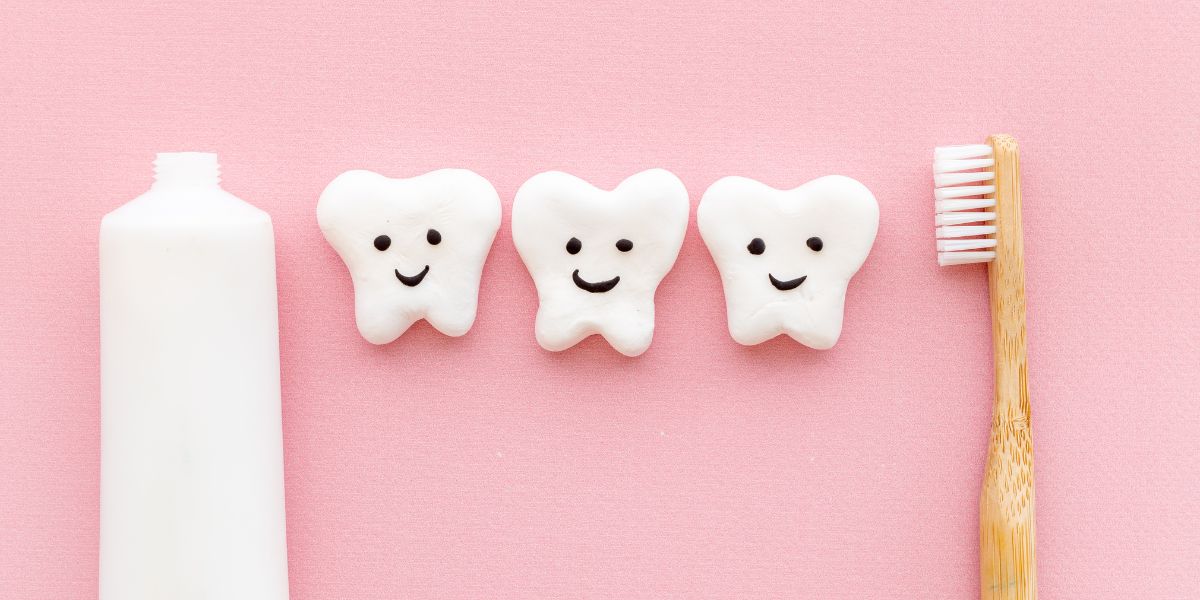The Connection Between Lifestyle Choices and Oral Health: Preventing Damage Before It Starts
When we think about health, we often focus on the physical aspects, like staying active, eating healthy, and avoiding harmful habits. However, one area that tends to get overlooked is our oral health. The truth is our lifestyle choices directly impact our teeth and gums. From what we eat to how we care for our mouths; every decision we make influences the health of our smile.
In this blog, we’ll explore the connection between lifestyle choices and oral health, and how we can prevent damage before it starts.
Oral health goes far beyond just having a nice smile. It encompasses everything from the health of your teeth, gums, and mouth to your overall well-being. Poor oral health has been linked to various serious conditions, including heart disease, diabetes, and respiratory infections. Yet, it’s easy to forget that our daily habits what we eat, how we live, and how we care for our teeth play a crucial role in determining the state of our oral health.
Your diet is one of the most influential factors in maintaining healthy teeth. Foods high in sugar and acid, like sodas, candy, and processed snacks, contribute to tooth decay. When sugar interacts with the bacteria in your mouth, it produces acid that erodes enamel and leads to cavities. Similarly, acidic foods like citrus fruits and vinegar can wear down enamel over time.

In contrast, a balanced diet rich in nutrients helps maintain strong teeth and gums. Foods that are high in calcium, such as dairy products, leafy greens, and fortified cereals, help strengthen enamel. Vitamin C-rich foods, like oranges, strawberries, and bell peppers, help prevent gum disease by supporting healthy gum tissue.
Smoking and tobacco use are two of the biggest culprits when it comes to oral health problems. Tobacco products, including cigarettes, cigars, and smokeless tobacco, contain harmful chemicals that can stain teeth, cause gum disease, and increase the risk of oral cancer. Smoking also reduces blood flow to the gums, which weakens the immune system’s ability to fight infections and slows down the healing process.
Gum disease is often one of the first signs of smoking-related oral damage. Smokers are more likely to develop gum recession, which exposes the roots of teeth and leads to tooth sensitivity. This can eventually lead to tooth loss if not addressed promptly.
Excessive alcohol consumption is another lifestyle choice that negatively affects oral health. Alcohol is acidic and can dry out your mouth, leading to reduced saliva production. Saliva plays a vital role in neutralizing acids and washing away food particles and bacteria. A dry mouth is a breeding ground for bacteria, which increases the risk of cavities, gum disease, and bad breath.
Additionally, alcohol can cause oral cancer over time, especially when combined with smoking. Heavy drinkers are more likely to develop oral lesions, and the combination of alcohol and smoking drastically increases the chances of developing oral cancers.
Even with the best intentions, if you’re not practicing proper oral hygiene, you’re setting yourself up for oral health problems. Brushing your teeth twice a day, flossing daily, and visiting the dentist regularly are essential habits that should never be neglected.
Failing to brush and floss regularly allows plaque, a sticky film of bacteria, to build up on your teeth. Over time, plaque turns into tartar, which can only be removed by a dentist. Tartar buildup can lead to gum disease, tooth decay, and bad breath. Additionally, using the wrong brushing technique (brushing too hard or using a hard-bristled toothbrush) can damage your gums and enamel.
Stress isn’t just a mental burden,it affects your body in numerous ways, including your oral health. When stressed, people are more likely to grind their teeth, a condition known as bruxism. This constant grinding can lead to tooth wear, fractures, and even jaw pain.

Stress can also lead to dry mouth, which, as mentioned earlier, increases the risk of cavities and gum disease. Furthermore, stress may cause people to neglect their oral care routine, contributing to poor oral hygiene and the development of dental issues.
Now that we know how various lifestyle choices can affect oral health, it’s time to focus on the solutions. Here are some practical steps you can take to improve your oral health and prevent damage before it starts:
Focus on eating a diet that is rich in essential nutrients. Include plenty of fruits, vegetables, whole grains, lean proteins, and dairy products in your meals. Limit sugary snacks and drinks, and when you do indulge in sugary treats, make sure to brush your teeth afterward to minimize the impact on your enamel.

If you smoke or use tobacco, seek help to quit. Not only will it improve your oral health, but it will also benefit your overall well-being. There are various resources available to help you quit smoking, including nicotine replacement therapies and support groups.
While moderate alcohol consumption may not have as significant an impact on oral health, excessive drinking is a risk. Try to limit your alcohol intake, and make sure to drink water after consuming alcohol to help keep your mouth hydrated and reduce the risk of oral health issues.
Brush your teeth at least twice a day using fluoride toothpaste, and don’t forget to floss daily to remove plaque from between your teeth. Invest in a soft-bristled toothbrush to avoid damaging your gums and enamel. Don’t forget to visit your dentist for regular checkups and cleanings. This will allow your dentist to spot any potential problems early on and keep your teeth and gums healthy.
Finding healthy ways to manage stress is crucial not only for your mental well-being but also for your oral health. Practice relaxation techniques such as meditation, yoga, or deep breathing exercises. If you grind your teeth due to stress, talk to your dentist about getting a mouthguard to protect your teeth.
Drinking plenty of water throughout the day helps to keep your mouth hydrated and promotes saliva production. Saliva plays a vital role in neutralizing acids and washing away food particles and bacteria. If you live in a dry climate or suffer from dry mouth, consider using a saliva substitute or chewing sugar-free gum to stimulate saliva flow.





